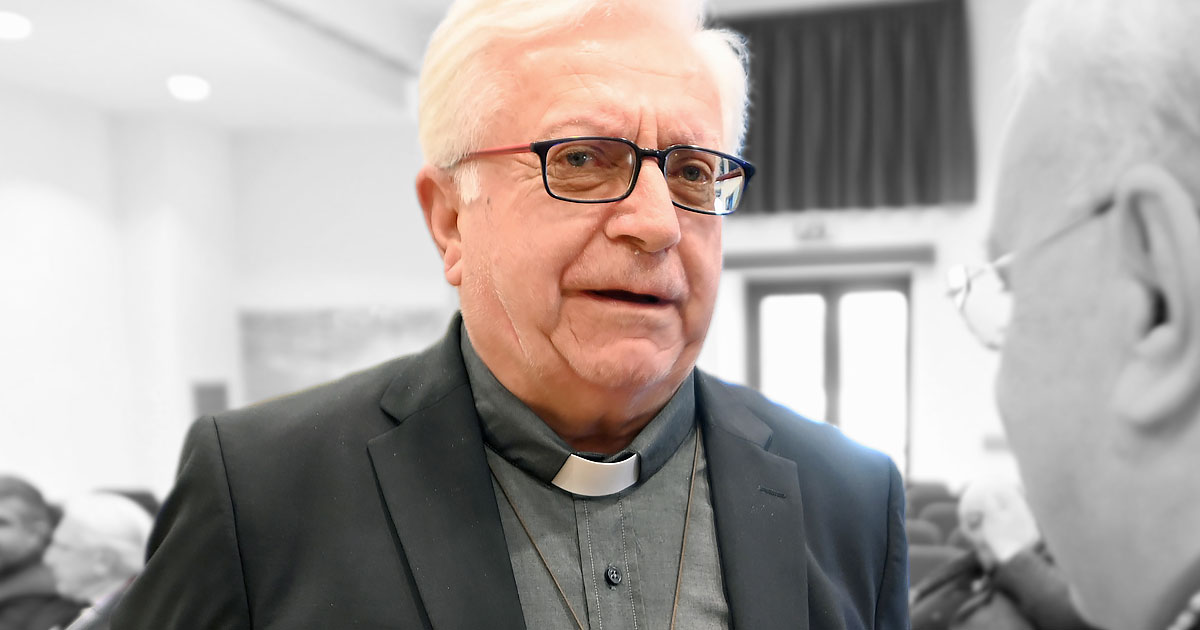“A bad choice”. So the archbishop John Richpresident of Pax Christi and bishop of Altamura-Gravina-Acquaviva delle Fonti, comments a ilfattoquotidiano.it the decision of the White House to supply cluster bombs to Ukraine. “In this context – says the prelate – in this wicked, tragic and dramatic decision to supply cluster bombs to Kiev, thus raising the level of the confrontation, what possible scenarios could open up if not those of an escalation of the war between Russia and Ukraine. Despite the peace travels, the peace missions, the peace diplomacy, the humanitarian support that the Church and many associations continue to give to Ukraine, what is the point of all these things if the continuation of a war that nobody really knows seems inevitable predict when and how it will end?”.
Your Excellency, you were recently in Ukraine and you saw the devastating effects of cluster bombs as well. What struck you the most?
In a kindergarten of Nikolaev I saw the traces of cluster bombs on the ground. The director of the institute she cried rethinking the damage to people and buildings. Even while we were talking, the explosions of the bombs could be heard and seen. The news that those cluster bombs can also be used by Ukraine cannot fail to be a cause for discouragement for those who want this pace, the just peace in the sense that it is the fruit of a dialogue, of a joint action, of a non-violent interposition between the two contenders, between whoever attacks and whoever is attacked. A decision that continues to fuel this escalation. By the way, I don’t know why, the Americans said it was one difficult choice to send cluster bombs to Ukraine, but the choice has been made. Despite 123 countries having adhered to the convention which prohibits them, with the exception, coincidentally, of the United States, Russia and Ukraine. France and Germany immediately underlined their opposition, stating that these were not the pacts, while NATO washed its hands.
Several times, even during these 500 days of conflict in Ukraine, it had been reiterated by many international leaders that indiscriminate targeting of civilians is a war crime. The Ukrainian president, Volodymyr Zelensky, and the American vice president, Kamala Harris, had also said so. What has changed?
Surely targeting civilians indiscriminately is a war crime. But war itself is a crime against humanity because the victims are between those who attack and those who are attacked, between those who invade and those who are invaded. It is precisely the logic of war as a solution to the conflict that returns once again, sixty years after the encyclical Peace on Earth of Saint John XXIII, to denounce that it is it is alien to reason resolve conflicts through war. Instead, faced with the evidence of this irrationality, the voices of what I like to call the people of peace, the voices of peace, are not heard at all. Then who knows how many crimes against humanity there will be. We know that Russia is committing crimes against humanity. I would not like the defensive response to in turn generate crimes against humanity, albeit for defense reasons, because civilians and children are equally affected, on both sides. A truly worrying and tragic escalation.
What will be the next moves of the Catholic Church?
Zelensky practically said to the Pope: “Stay in your place: just pray”. As the Catholic bishop of Odessa who advised me against going there told me: “Pray at home so that we do not assume responsibility in the event you are hit. That is, just pray. And if you want to do us a favor, send us the weapons”. So much so that the Catholic bishop of Odessa himself, in an interview, said that the weapons we send are blessed by God. There are those who argue that the Church must not enter into the geopolitics of this war, it must only think about the level humanitarian. It does not seem to me that the mission to Kiev and Moscow of Cardinal Matteo Maria Zuppi, the Pope’s envoy, served only to say that the Church will send aid. He also went there to say, on behalf of the Pope: “Stop it! The Vatican is here, the Church is here to mediate”. But the two seem deaf. And I wonder why the Church shouldn’t get involved in geopolitics? Why should the Church remain confined only to the humanitarian level? For us Christians, peace is prophecy. We cannot accept, as Saint John XXIII taught us, that the Church does not enter into geopolitics. How does the voice of peacemakers express itself? The prophecy of peace is certainly difficult, but I believe that in the Church and in the world we need more prophecy than diplomacy. When I speak of diplomacy I mean a worldly logic that could also justify the use of arms. I’m not talking about the diplomatic discourse: that’s what’s needed. Weaving a network of relationships in view of peace is necessary. I say that in the first place, however, there must be prophecy in which we must also know how, as Christians, to give life as all the prophets have given it. The first, obviously, was Jesus Christ who, precisely because of his prophecy of peace and non-violence, was crucified.
Twitter: @FrancescoGrana
